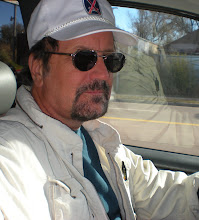Joseph Medicine Crow, Tribal War Chief and Historian, Dies at 102
By MIKE McPHATEAPRIL 4, 2016
By MIKE McPHATEAPRIL 4, 2016
Joseph Medicine Crow spoke in 2001 at a dedication for a Peace Memorial near the site of the Battle of the Little Bighorn in Montana.
Joseph Medicine Crow, the last living war chief of the Crow Tribe of Montana and a renowned Native American historian and anthropologist, died on Sunday at a hospice in Billings, Mont. He was 102.
Terry Bullis, the funeral director at Bullis Mortuary in Hardin, Mont., confirmed the death.
Mr. Medicine Crow was the last living person to have heard direct oral testimony from people who were present before the Battle of the Little Bighorn in 1876. His step-grandfather, White Man Runs Him, was among six Crow scouts for George Armstrong Custer.
In 2009, President Obama presented Mr. Medicine Crow with the Medal of Freedom, the nation’s highest civilian honor, citing his contributions as a World War II service member and the author of seminal works on Native American history. In one wartime incident he stole 50 Nazi SS horses from a German camp, the White House said.
“He was a national treasure,” said Herman J. Viola, a historian who collaborated with Mr. Medicine Crow. “There is simply nobody like him. You meet Joe Medicine Crow, you’re shaking hands with the 19th century.”
Gov. Steve Bullock of Montana said in a tribute on Twitter that Mr. Medicine Crow would “forever serve as an inspiration for all Native Americans — and all Montanans.”
He graduated from Linfield College in McMinnville, Ore., in 1938 and earned a master’s degree in anthropology from the University of Southern California a year later, specializing in the effect of European culture on Native Americans. In 2003, the university awarded him an honorary doctorate.
Mr. Medicine Crow said that he had completed his coursework toward the doctorate and had begun writing his dissertation in the early 1940s, but that he never finished.
“I had an uncle who had other plans for me,” he told The Billings Gazette in 2003. “Uncle Sam.”
Serving in the Army in Europe during the war, he accomplished the four traditional deeds that earn Crow Tribe members the status of “war chief” — one of which is stealing an enemy’s horse.
After the war he worked for the Crow Tribe for several years and became an appraiser for the Bureau of Indian Affairs. He retired in 1982.
Mr. Medicine Crow’s wife, Gloria Morrison Medicine Crow, whom he married in 1947, died in 2009. There was no immediate word on his survivors.
Mr. Medicine Crow, who spoke at the United Nations in 1999, often gave speeches at high schools and colleges about the Battle of the Little Bighorn — also known as Custer’s Last Stand — when Cheyenne and Sioux warriors handed Custer and his cavalrymen a crushing defeat near the Little Bighorn River in Montana territory.
Dr. Viola, a curator emeritus at the Smithsonian Institution’s National Museum of the American Indian, said it was hard to overstate Mr. Medicine Crow’s value as a link to that moment in American history.
“Joe personally knew four of those scouts that had been with Custer,” he said. “So, I mean, how can you deal with that? As a historian, it was unbelievable to meet someone who could really give you insights into that time period.”
Last year, Mr. Medicine Crow attended the groundbreaking for a middle school that was being named in his honor in Billings. He wore an Indian headdress, sunglasses and three medals around his neck.
“Billings is, like me, getting older,” he said, according to The Billings Gazette. “But also, like me, better.”


1 comment:
Helpful blog post ! For what it's worth , others are interested in a CG 20 37 , my colleagues edited a blank version here https://goo.gl/AK7raI.
Post a Comment